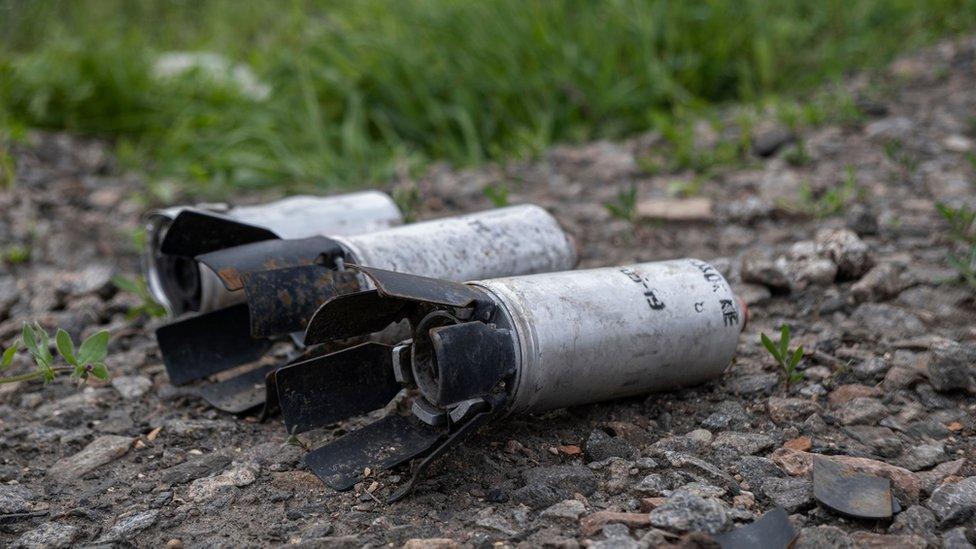From Ukraine to Aspen, nervousness over a critical moment for the war
- Published
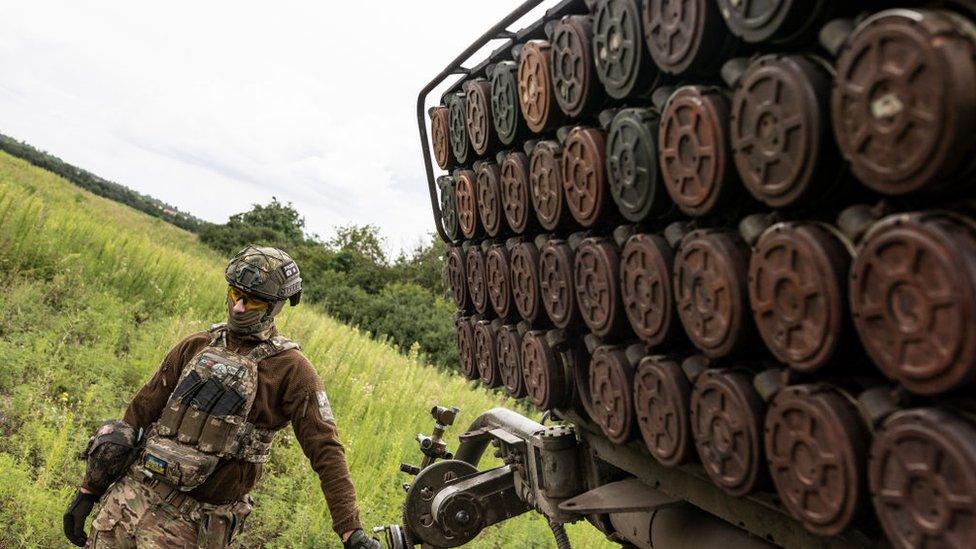
Weapons and ammunition could make the difference in the war for Ukraine
The rarefied setting of Aspen, Colorado, with its mountain views and manicured lawns, is a world away from the minefields and trenches of Ukraine's front-line, but for a few days this past week the two places were connected.
Every year, the Aspen Security Forum plays host to the influential elite who shape America's relationship with the wider world.
And this time, uppermost in the minds of policymakers and think-tankers were questions about the progress of the war in Ukraine.
President Volodymyr Zelensky even made an appearance - showing up remotely on a vast screen in the auditorium - to express thanks and ask for more help, an acknowledgement that this is a critical period in which much seems to lie in the balance.
And arriving in Aspen off the back of three weeks in Ukraine, I found a nervousness not far beneath the surface about not just the pace of Ukraine's current counter-offensive but also about America's long-term commitment.
Ukraine is a month into its counter-offensive and it is clear that it's proving, as one speaker put it, a "hard slog" with often just a few metres of ground taken each day.
The first question to President Zelensky was why things were going slower than expected. He patiently explained that the launch of the counter-offensive had been delayed because of a lack of weapons, ammunition and training and that this had given Russia a chance to lay more mines and improve its defences.
But, he said to reassure those that might be growing worried, the moment when actions would "gain pace" was approaching.
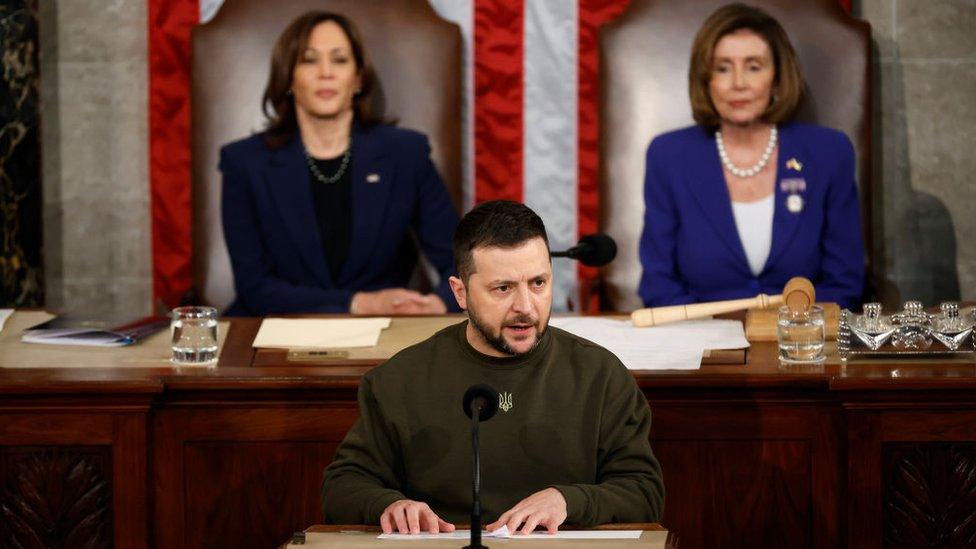
Ukraine's President Volodymyr Zelensky spoke at the US Capitol in 2022, but is support waning?
Ukraine relies on US military aid - and you can glimpse tension over what has been given and when.
Where President Zelensky in Aspen renewed his call for more, US National Security Adviser Jake Sullivan barely an hour or two later said that US military advisers do not believe F-16 fighter jets would play a significant role in current operations.
Other Americans who have been closely involved in the weapons supply also privately say that Ukraine has what it needs for the current counter-offensive and re-arming them again to the same extent in the future may not be so easy. For that reason the next period on the battlefield will be pivotal.
The war may look slow but it is not a stalemate - or at least not yet.
Ukraine is still probing to find a weakness in Russia's defences so it can then apply the forces it has held in reserve in the hope of making a significant breakthrough.
If that works, then Ukraine could be in a strong position. But if they cannot break through, then talk of a stalemate may be more accurate and lead to difficult conversations.
And war is a battle of wills and of staying power as well as of weapons and ammunition.
At Aspen and in Kyiv, intelligence officials and diplomats are keen to draw attention to signs that the pressure is beginning to tell within Russia.
That was most evident in Wagner boss Yevgeny Prigozhin's mutiny a month ago with his complaints about the failures of Moscow's military leadership. Other generals have been sacked amid reports of low morale and frustrations among Russian troops and their commanders.
Both Ukrainian and American officials are keen to highlight those fissures and suggest they may deepen.
In Ukraine, there is a clear sense of determination from a population that has suffered and that wants to regain the territory that Russia has taken. No one appears in the mood to talk about negotiations or compromise.
Still, there are hints of cracks in Western support.
Members of the US Congress spoke openly at Aspen of how their constituents could not place Ukraine on a map and questioned the scale of the financial commitment.
Seventy Republicans in Congress had voted to end future assistance to Ukraine a week earlier - more than many expected. In the Republican primary to pick a presidential candidate, saying money should be spent in the US and not abroad makes for an easy applause line.
The looming shadow of Donald Trump also hung over Aspen with questions about what his possible re-election would mean not just for Ukraine but for America's position in the world and relationship with its allies.
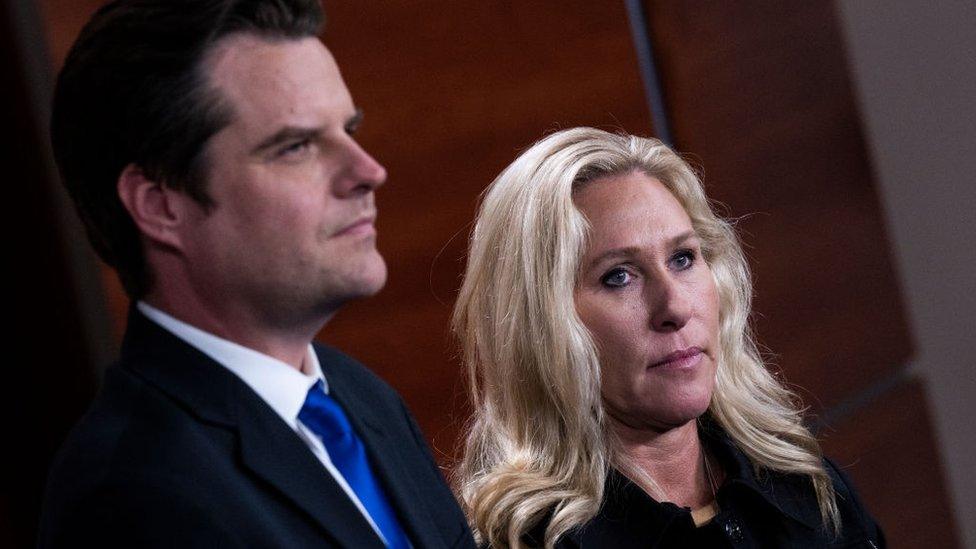
Some Republicans, like Representatives Matt Gaetz and Marjorie Taylor Greene, do not support Ukraine assistance
America's allies are aware - and privately express their concerns - about the risks of support for Ukraine eroding, especially as the US heads into an election next year.
UK defence secretary Ben Wallace caused a stir at the Nato summit when he talked of Ukraine's need to show more gratitude.
What he seemed to mean was that Ukraine needed to be more mindful of the debates in Washington DC, especially after President Zelensky's tweet criticising the lack of a clear path to Nato membership.
The UK's foreign secretary, James Cleverly, travelled to Aspen to make his case.
"We must not allow ourselves to be seduced by the Russian propaganda that this is somehow a stalemate," he told the audience.
His message was that the US needs to be less defensive about its support for Ukraine and to do more to make that case, including to its own public.
All of that suggests that there is an understanding in both Ukraine and amongst the Aspen elite that the next few weeks and months will be pivotal.
They are likely to determine whether Ukraine can break through militarily, whether cracks in Russia deepen and whether Western - and particularly American - support holds up.
Related topics
- Published21 July 2023
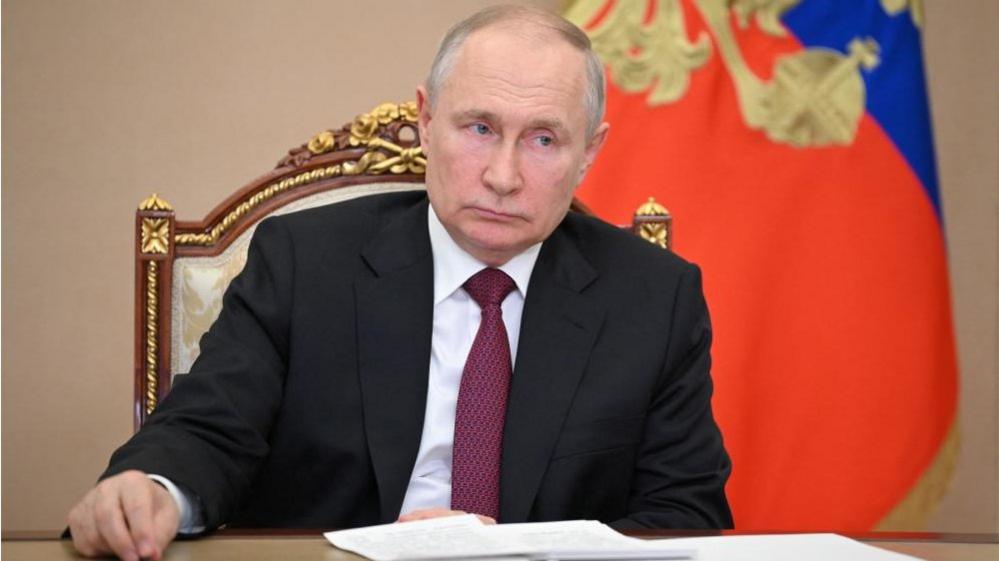
- Published21 July 2023
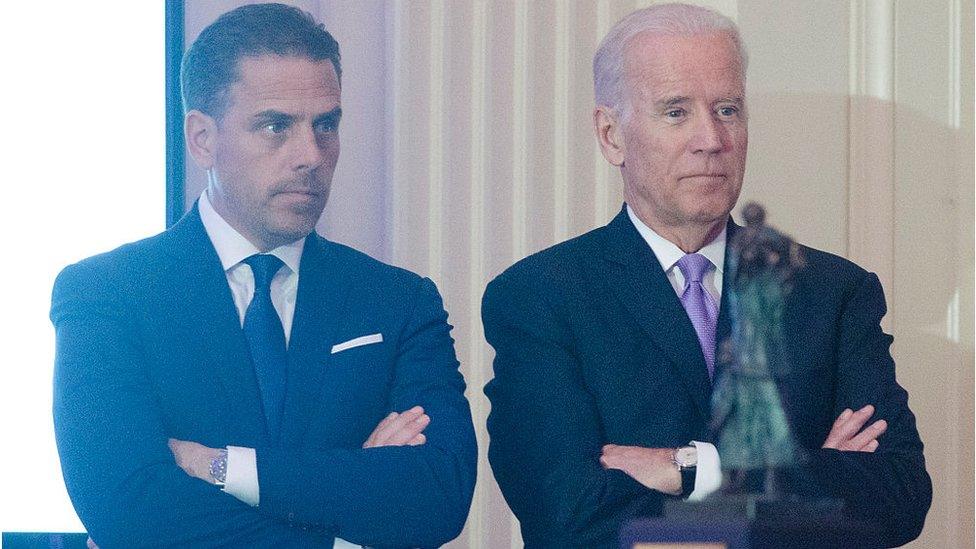
- Published20 July 2023
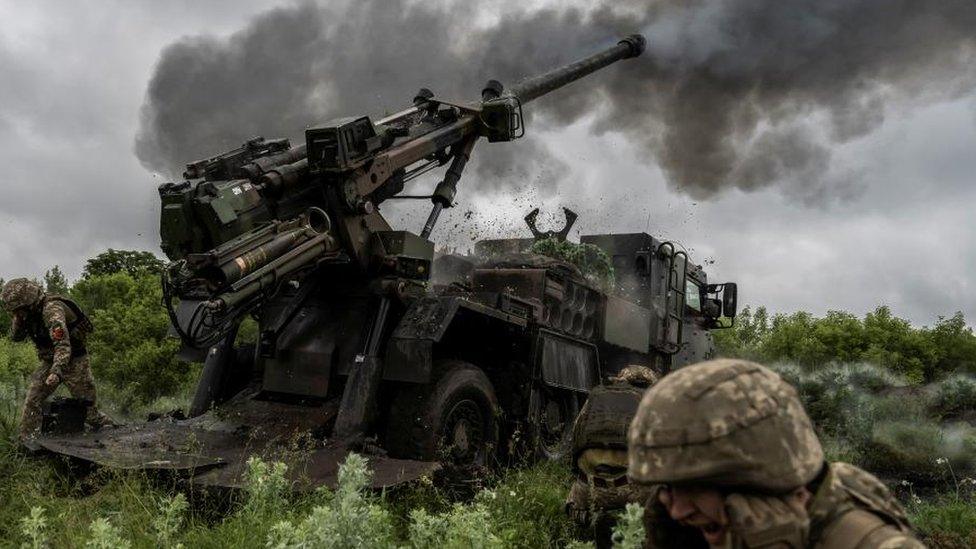
- Published10 July 2023
